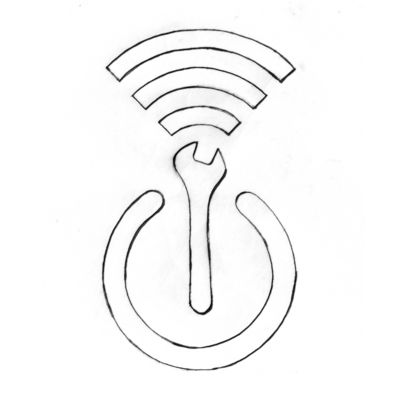A bi-weekly talk show by The Restart Project, plus a monthly documentary series produced by brilliant podcaster Dave Pickering, based on fixing triumphs, heartbreaks and wisdom shared at our community repair events – called Restart Parties – here in London. We go into real depth about good and bad design, obstacles to repair of electronics, emotional aspects of ownership, environmentally irresponsible business models, and the “end of life” of our gadgets. This podcast is for you if you'd like to fix your relationship with electronics. Let’s rethink, restart.
https://therestartproject.org/podcast/
Restart Radio: Global supply chains and The Virus
For March’s show we take a look at perhaps the most unavoidable topic in our world today, coronavirus (COVID-19). We took this as an opportunity though, to discuss the issue in light of a topic that is relevant all the time, the supply chains that are integral to the electronics industry and how sustainable they really are. Janet was joined by long-time Restart volunteer, Panda Mery, to delve deeper into the unseen complexities of tech supply chains and what we may not realise is going into the production of our devices.
Good and bad news for repairabilityBefore diving into this massive topic, we had a couple smaller, but still important stories to discuss. We returned to tech-giant Apple and $500 million settlement in the US following a class-action lawsuit over ‘Batterygate’ and the purposeful slowing down of iPhones. Is this such a minuscule fine in the grand scheme of things that it is almost ineffectual? And how ethical is this practice that Apple employed? Then some good news from our friends at iFixit about electronic repairability standards – a major victory for the Right to Repair movement. And finally, some questionable tactics in the UK government’s approach towards e-waste collection, which indicate divergence from ambitious EU targets.
What the Virus means for tech supply chains – and the worldApproaching our main topic of the day – the Virus – we want to take caution and recognise that focusing on the issue in a tech-centric way does stand to erase some of the bigger issues at stake, those of how this will impact citizen autonomy and increase the control that governments have over us and our bodies.
In terms of tech, we discuss how international and complex supply chains have become and the way that a pandemic of this kind is already having sufficient impact on the global economy and tech industry as a whole. This proves the advantages of making electrical components more reusable to leave us less beholden to these supply chains. We also look at how the environment has been impacted by a sudden decrease in production and travel.
Overshadowed issuesFinally, we close with two shocking stories that have managed to be all but buried by other news this month. We discuss an investigation into forced labour of Uighurs in China in factories that produce components that are almost certainly in your devices. We think about what action consumers can take, and how far we can actually help to solve these issues.
Then a look at a White House cover up of information on the chemical trichloroethylene (TCE), and how Brexit may impact access to technical information on risks associated with chemical usage in industry, that bears great influence over public health.
Although there is certainly much more to say about supply chains, with all of these topics we aim to encourage you to educate yourself on all of the steps it takes for a device to be in your hands and how you can support those involved along the way, and our planet as a whole.
Links:
- Right to Repair smartphones petition
- U.S. PIRG: $500M settlement for Apple’s “BatteryGate” underscores need for Right to Repair
- iFixit: Fixers Know What ‘Repairable’ Means—Now There’s a Standard for It
- Let’s Recycle: Defra slashes WEEE collection targets
- Wired: The Right to Repair Will Help Us Endure Outbreaks
- Australian Strategic Policy Institute report “Uyghurs for Sale“
- Independent: Apple, Samsung and Sony among 83 global brands using Uighur Muslim ‘forced labour’ in factories, report finds
- EDF: Trump EPA’s draft evaluation of cancer-causing TCE cuts corners, putting kids’ health at risk
- CHEM Trust’s Brexit and Chemical Protections
[Featured image courtesy of the CDC]
The post Restart Radio: Global supply chains and The Virus appeared first on The Restart Project.
